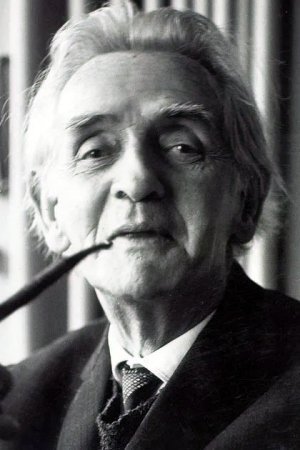Louis Guilloux
Louis Guilloux (15 January 1899 – 14 October 1980) was a Breton writer born in Saint-Brieuc, Brittany, where he lived throughout his life. He is known for his Social Realist novels describing working class life and political struggles in the mid-twentieth century. His best-known book is Le Sang noir (Blood Dark), which has been described as a "prefiguration of Sartre's La Nausée." Guilloux's father was a shoemaker and socialist activist, a background that Guilloux describes in his first book La Maison du Peuple (The House of the People), which centres on the struggles of a shoemaker called Quéré as seen through the eyes of his young son. The story describes how Quéré's idealistic political activism threatens his small business as he loses custom by pushing against ingrained conservatism. Nevertheless, he manages to build self-help cooperatives on the model of Proudhonism. In high school, Guilloux befriended the philosophy tutor Georges Palante, an anarchist thinker who later killed himself. Palante's despair inspired Guilloux to create the character of Cripure, the anguished anti-hero of Le Sang Noir (1935), which is considered his masterpiece. The name Cripure is a contraction of "Critique de la raison pure" (Critique of Pure Reason). He also commemorated his old tutor in a memoir. Before becoming a professional writer, literary translator and interpreter, Guilloux worked in various trades, including journalism. He was well known for his fluency in the English language. He married in 1924, and published La Maison du Peuple in 1927. The success of the book led to a long series of novels on socially committed themes, usually based in his native Brittany. His masterpiece Le Sang Noir was notable for its departure from his earlier, more straightforwardly socialist literature, since it contains elements of what was later associated with an existentialist or absurdist vision. It centres on the suicidal thoughts of the anti-hero, Cripure, who feels overwhelming disgust at humanity in the destructive circumstances of militarism during World War I. Contrasted with the figure of Cripure is the nominal hero, Lucien, who aspires to work for a better future. But the grotesque and self-excoriating visions of Cripure are repeatedly portrayed as more powerful and compelling than Lucien's idealism. The book was translated into English under the title Bitter Victory. Le Pain des Rêves (Bread of Dreams), which he wrote during the Occupation, won the Prix du roman populiste in 1942. After the liberation of France, Guilloux worked as an interpreter for the American army of occupation. In OK Joe! he explored racial inequalities and injustice in the segregated American army of the time. Guilloux's experiences at this time are described by Alice Kaplan in her 2006 book The Interpreter. His 1949 novel Le Jeu de Patience (Game of Patience) won the Prix Renaudot. It has been described as his most experimental work, "an intricate text demanding patient reconstitution by the reader. Micro- and macro-history collide: the horrors of war, and anarchist and Popular Front politics or right-wing coups, impinge violently on private dramas. It is a haunted kaleidoscope, often hallucinatory." ... Source: Article "Louis Guilloux" from Wikipedia in English, licensed under CC-BY-SA 3.0.

Apostrophes
as SelfApostrophes was a live, weekly, literary, prime-time, talk show on French television created and...
TV Show page